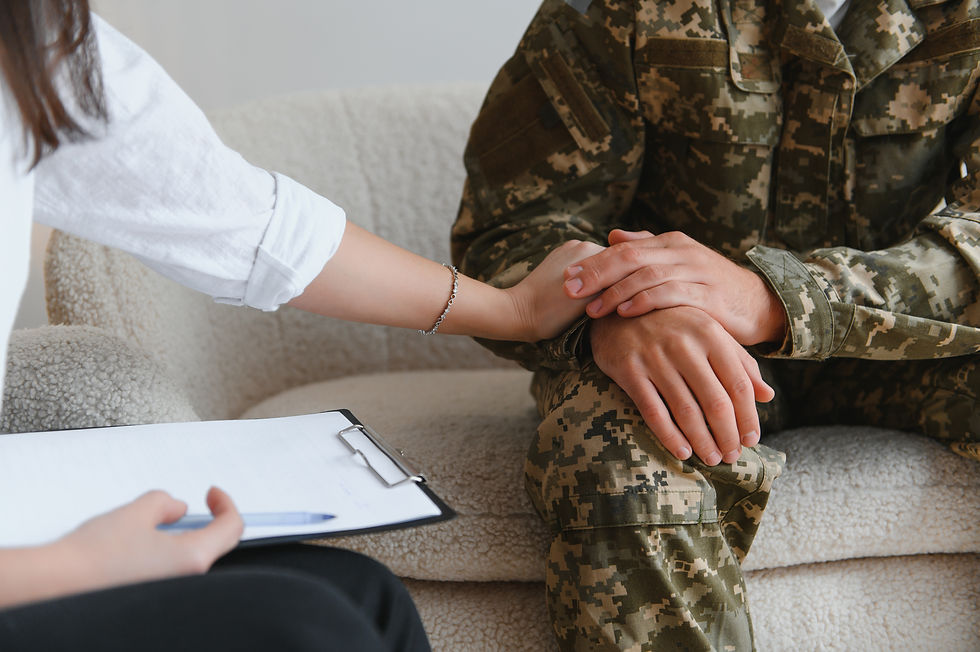top of page
PROVIDERS
FOR
You Can’t Treat What You Can’t See
Drone and remote warfare veterans often walk into clinics misunderstood or completely missed. They may not present like your typical combat veteran. They may not even call it trauma. But many carry years of exposure, moral conflict, and unresolved stress that will not appear on traditional screening tools.
At Remote Warrior, we help you see what others cannot.
Remote warfare changes you, even when no one else sees it.
RECON
[Remote Engagement & Combat Operations Neuroprofile]
The RECON (Remote Engagement & Combat Operations Neuroprofile) tool is the first trauma screen built specifically for drone veterans.
Unlike the PCL-5, RECON accounts for: Persistent indirect trauma (such as ISR surveillance and reviewing strikes) Moral injury from carrying out lawful orders that violate personal values
Identity loss from being told "you weren’t deployed" Nervous system dysregulation from constant high alert and shift work
Use it alongside the PCL-5 or during intake.
It helps you ask the right questions and reach the full story.

RESOURCES
Clinical Education & Briefings
We offer educational briefings and training modules for:
VA clinicians and mental health professionals
VSO intake staff and peer support specialists
Trauma researchers and academic programs
We customize content based on your needs, whether you are starting from scratch or ready to take action.

Improve Outcomes.
Reduce Missed Diagnoses.
Drone veterans are often misdiagnosed with adjustment disorder or anxiety—or dismissed entirely—because their service does not fit the traditional combat mold.
But trauma is trauma. Your awareness and action can change lives.
What can you do TODAY:
Ask about drone, ISR, or GCS-based service
Incorporate RECON into your initial assessments
Offer trauma-informed, identity-sensitive support
Refer them to our peer-led community if needed
Better care starts with better understanding.
PARTNER
with us.
We are looking for:
Pilot Sites
Mental Health Providers Ready to Lead the Way in New Trauma Care Models
Research Collaborators
bottom of page
